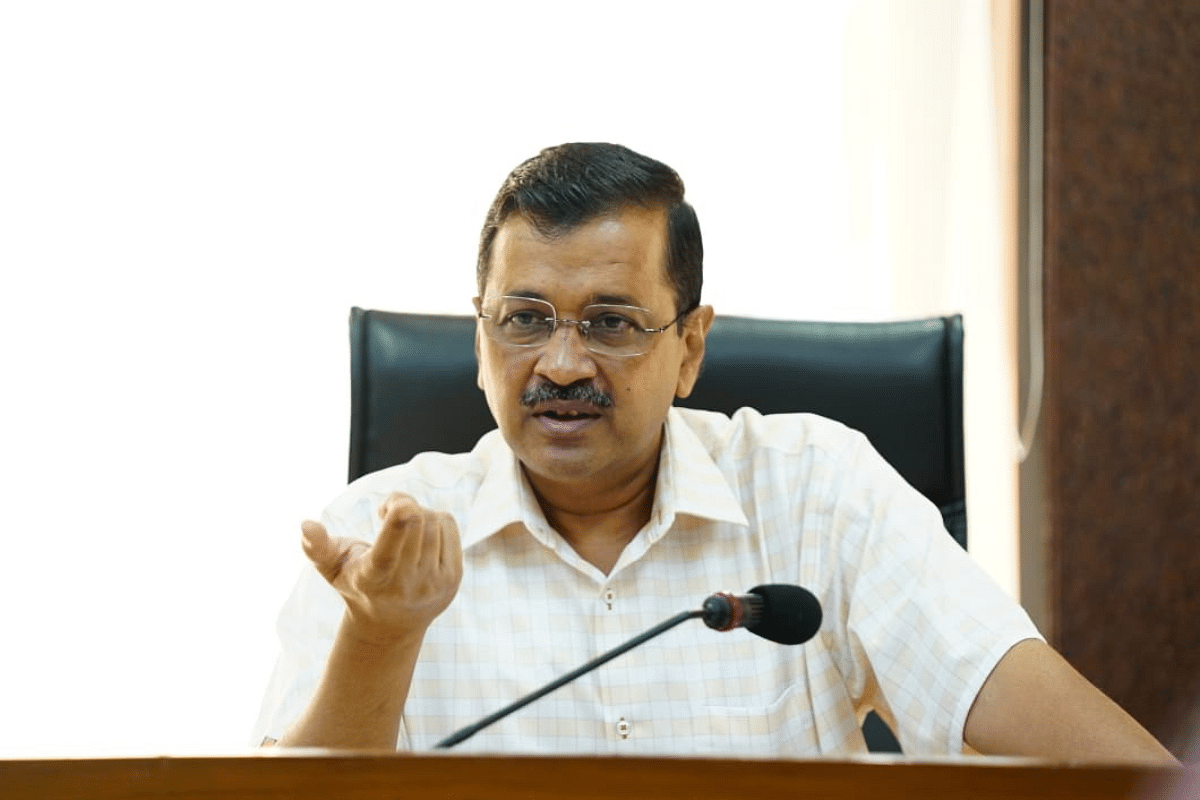News Brief
Kejriwal Brings Back Failed Odd-Even Policy As Stubble Burning In AAP-Run Punjab Chokes Delhi

Delhi CM Arvind Kejriwal
Amid rising pollution levels in Delhi, the Chief Minister Arvind Kejriwal led Aam Aadmi Party (AAP) government is bringing back the odd-even policy in the national capital.
Delhi Environment Minister Gopal Rai on Monday (6 November) announced that the odd-even rule for vehicles will be back in Delhi the day after Diwali.
He said that schools closures has been extended up to class 11 for this week in view of the rising pollution levels.
All schools will be shut across the national capital except Classes 10 and 12 till November 10, the minister said. At present, only classes up to class 5 are suspended in view of the deteriorating air quality.
The odd-even rule for vehicle regulation will be starting from 13 November, a day after Diwali.
This comes as for almost a week, Delhi has been engulfed in a dense layer of hazardous smog, coinciding with with a spike in stubble-burning incidents in Punjab and Haryana.
According to the data shared by the Haryana Agriculture Minister Jai Prakash Dalal, the AAP-run Punjab witnessed 1,921, 1,668 and 1,551 farm fires on 1, 2 and 3 November while stubble-burning incidents in Haryana were 99, 48 and 28 on the three days.
Responding to Haryana minister's claim, the AAP accused him of "spreading lies" .
"Twenty out of the 52 most polluted districts in the country are in Haryana and even then the Khattar government is playing politics and blaming Punjab," Punjab AAP unit spokesperson Neel Garg said.
Meanwhile, the air quality situation in the national capital has lead to the enforcement of restrictions such as the prohibition of diesel truck entry and the cessation of construction work within the city, as part of the Stage-4 measures of the Graded Response Action Plan (GRAP).
As per the odd-even rule, vehicles bearing license plates that conclude with an odd number are permitted to travel on Delhi's streets on dates with odd numbers, while those ending in an even number may circulate on even-numbered dates.
The need to extend the odd-even rule beyond 20 November will be reviewed later, the minister said.
However, the effectiveness of odd-even rule, which has been the Kejriwal government's key strategy in its anti-pollution efforts over recent years, in has been met with skepticism in the past.
A 2016 study concluded that the odd-even rule didn't result in the anticipated traffic emission reductions
The 15-day odd-even formula in Delhi in January 2016 failed to improve the national capital's air pollution levels as there was barely any impact on the vehicular pollution load, the study found.
Though it unclogged the traffic in the peak hours, the odd-even rule didn't result in the anticipated traffic emission reductions in January 2016, Indian scientists reported in the journal Current Science.
The researchers identified two reasons for the scheme's failure - people shifting their travel schedule to beat the restrictions and a sharp rise in the number of buses, auto-rickshaws, taxis and two-wheelers that were exempted from the road rationing rule.
Support Swarajya's 50 Ground Reports Project & Sponsor A Story
Every general election Swarajya does a 50 ground reports project.
Aimed only at serious readers and those who appreciate the nuances of political undercurrents, the project provides a sense of India's electoral landscape. As you know, these reports are produced after considerable investment of travel, time and effort on the ground.
This time too we've kicked off the project in style and have covered over 30 constituencies already. If you're someone who appreciates such work and have enjoyed our coverage please consider sponsoring a ground report for just Rs 2999 to Rs 19,999 - it goes a long way in helping us produce more quality reportage.
You can also back this project by becoming a subscriber for as little as Rs 999 - so do click on this links and choose a plan that suits you and back us.
Click below to contribute.
Latest